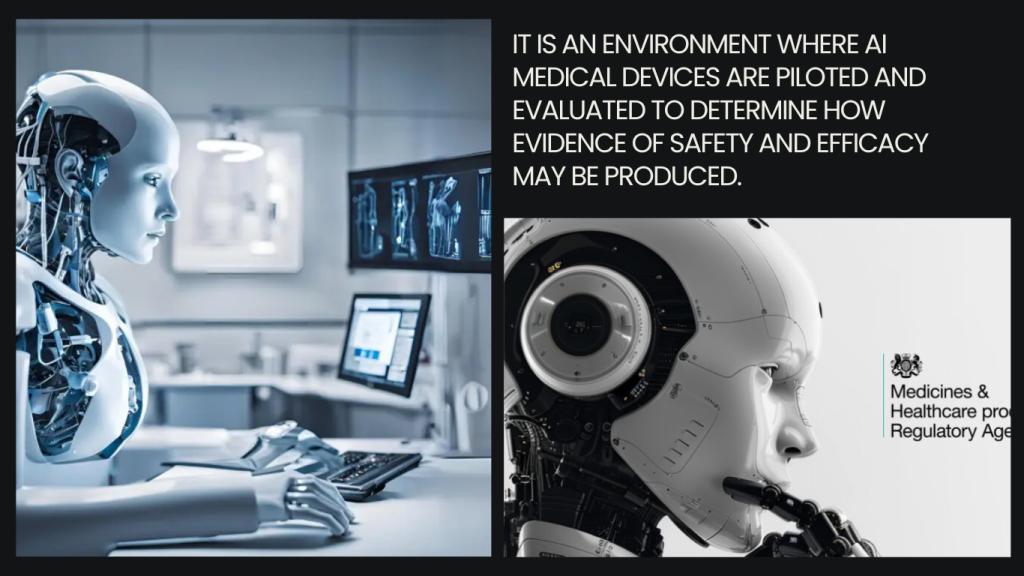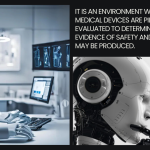The MHRA AI Airlock is a revolutionary initiative by the Medicines and Healthcare Products Regulatory Agency.
It aims to transform the regulation of AI-powered medical devices in the UK. This pilot scheme proposes to refine and advance the current regulatory framework for innovative medical devices. It ensures they are safely, effectively, and efficiently accessible to patients and the NHS. This way, it fulfills one of the most pressing requirements in today’s healthcare. Its a need for new and modern medical technologies.
What is the MHRA AI Airlock?
The MHRA AI Airlock is a regulatory ‘sandbox’, for online platforms or APIs. It is an environment where AI medical devices are piloted and evaluated to work out how evidence of safety and efficacy may be produced. As opposed to conventional medical devices, AI-based alternatives improve due to data learning, and thereby, creating a definitive set of security benchmarks is quite a complicated task. This pilot is to help manufacturers test real-life usage scenarios while being supervised by regulation authorities, thereby overcoming these issues and helping in the improvement of regulation strategies.
The main objective of the MHRA AI Airlock is to bring AI advances into the reality of healthcare settings. By fast-tracking the regulation process it makes it easy for transformative AI technologies to reach the patients thereby improving the patients as well as the overall healthcare system.
Selected AI Technologies in the Pilot
Five promising AI technologies have been chosen for the MHRA AI Airlock program. These devices address different issues to do with health, ranging from long-term conditions to radiographic analysis. Each of these innovations has the potential to transform healthcare delivery:
- AI for COPD Management
The prevalence of Chronic Obstructive Pulmonary Disease (COPD) is high throughout the United Kingdom, and thus individuals succumb to the illness and are often readmitted to hospital. Lenus Stratify®, one of the selected devices, applies AI to forecast serious outcomes in patients with COPD and help healthcare teams provide appropriate help on time. , it can decrease the number of patients going to hospitals, enhance the quality of life in patients, and lighten the load of the NHS. - Radiology Workflow Enhancement
Philips has recently designed an AI tool to improve radiology reports. Enhancing the report generation process, it optimizes most patient data while, at the same time, minimizing errors often experienced bedside; and easing the burden of work for radiologists. The end is quicker diagnoses, fewer mistakes, and enhanced doctor-patient and other members of the medical staff relations. - Real-Time AI Monitoring
Newton’s Tree has launched FAMOS, the Federated AI Monitoring Service, an application to monitor AI in real conditions. The work of this tool is in performance degradation, which is the result of an environment change and achieves reliability. At the patient end, this means enhanced safety and accuracy of the care that is being delivered through the use of artificial intelligence. - Cancer Care Optimization
Another of the pilot participants is OncoFlow, which uses artificial intelligence to develop individual treatment options for oncological patients. Karin Smyth, a UK Health Minister, described it as part of the ten-year plan to digitalize the National Health System. This plan aims to improve the care the NHS provides. - AI-Assisted the Clinical Decision-Support
Therefore, this paper seeks to determine some clinical decision-making that might be useful for AI and machine learning. SmartGuideline employs LLMs to ensure clinicians always have easy access to the guidelines without the need to deal with misinformation. Providing credible information can thus facilitate better and safer treatment plans.
Benefits of the MHRA AI Airlock
The pilot scheme is a multi-stakeholder project by the MHRA, the NHS AI Lab, and consortium partners from academia, industry, and government. It addresses multiple challenges, including:
- Faster Access to Innovation: The Airlock creates a clear regulatory path to help the NHS adopt AI technologies more quickly. This faster adoption can save more lives.
- Improved Patient Outcomes: These innovations range from early disease diagnosis to creating specific treatment plans. They all make healthcare more effective.
- Economic and Technological Growth: The UK is promoting AI to improve the healthcare industry. This helps contribute to the growth of the medical technologies market.
Insights from Leaders
From the MHRA perspective, Laura Squire, the MedTech Regulatory Reform Lead, discussed how lifecycle authoritative warranties ensure that an AI medical device would exceptionally perform safely and competently. She showed how the Airlock helps technology developers and healthcare providers by involving coders. This collaboration leads to improvements in the regulations.
Karin Smyth, a UK Health Minister, described it as part of the ten-year plan to digitalize the National Health System. This plan aims to improve the care the NHS provides. Science Minister Lord Vallance was of a similar sentiment saying that the Airlock proves that smart regulation effectively supports the growth of new-generation technologies on a sustainable basis.
The Future of AI in UK Healthcare
The results of the MHRA AI Airlock pilot that should be launched in 2025 will shape the further evolution of AI medical device regulations. They will create approaches towards the UKCA marking, and assist manufacturers in gaining better support frameworks. The NHS in ensuring a smooth identification of innovative technologies.
The program aligns with recommendations from Lord Darzi’s report. It highlights the need for strict regulations to improve AI use in healthcare.By following these recommendations, the MHRA AI Airlock provides solutions to integrate innovative medical devices into healthcare. This helps meet the needs of patients and the wider population.
4o mini
Conclusion
MHRA AI Airlock pilot scheme merely demonstrates a great potential for revolutionizing healthcare using AI. Thus, promoting teamwork, creativity, and safety — creates the conditions for AI-enhanced medical devices to revolutionize patient experience in the country. This way not only improves the conditions of healthcare but also creates a strong medical technology market in the United Kingdom.
For further details, visit the official MHRA news release.
Access to the AI Airlock:
https://www.gov.uk/government/collections/ai-airlock-the-regulatory-sandbox-for-aiamd







